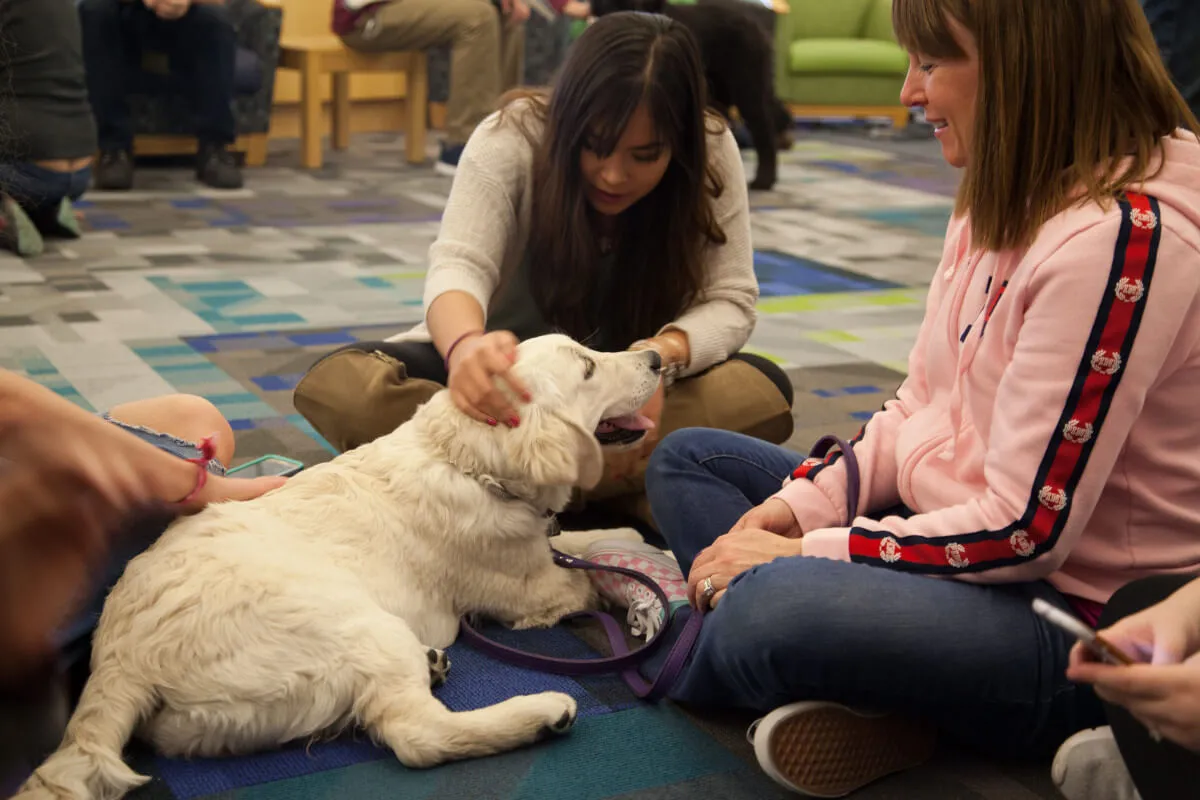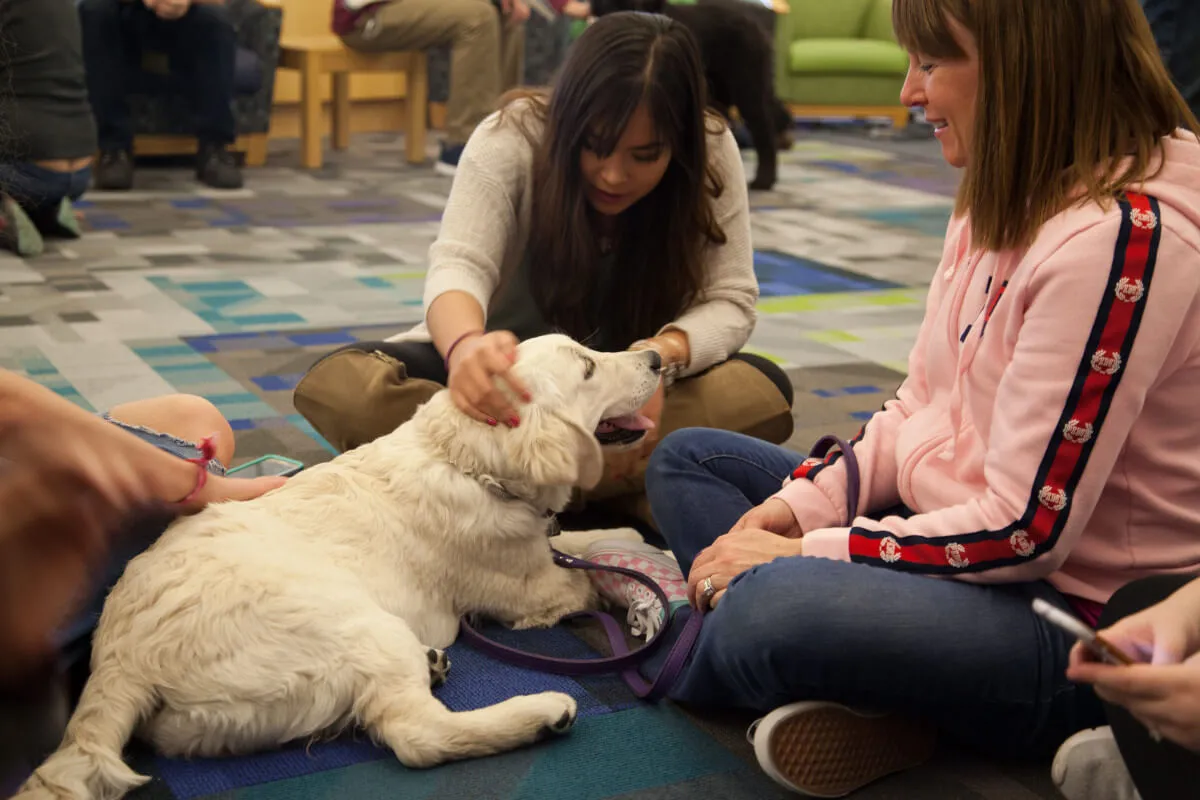
Animals on Campus
Animals on Campus Policy
The Animals on Campus Policy outlines policy and procedures for animals on campus, defining guidelines for pets, service animals and emotional support animals.
Emotional Support Animals

An Emotional Support Animal is an animal that provides emotional support that eases one or more identified symptoms of a person’s disability(s). This group includes therapy, emotional support or comfort animals.
Emotional Support Animals may reside in University Housing as a reasonable accommodation for students with disabilities. Before an Emotional Support Animal can move into University Housing, the student must receive approval by Disability Services.
Service Animals
A “Service Animal” means any dog (and possibly miniature horse) that is individually trained to do work or perform tasks for the benefit of a person with a disability, including a physical, sensory, psychiatric, intellectual, or other mental health disability. The work or tasks performed by a Service Animal must be directly related to the person’s disability, including but not limited to:
- Assisting individuals with low vision or blindness
- Alerting individuals who are deaf or hard of hearing
- Pulling a wheelchair or stabilizing a person’s gait
- Retrieving items such as medicine, food, or a telephone
- Recognizing and assisting a person having a seizure or who may be experiencing flashbacks or emotional trauma, such as from PTSD
Service Animals are permitted to accompany people with disabilities in all areas of UCCS’s facilities where students, members of the public, and other participants in services, programs or activities are allowed to go, subject to the restrictions outlined in Section E below. Persons accompanied by a Service Animal on campus who do not need any other disability-related accommodations are not required to register with the Office of Disability Services.
When a person’s disability is obvious, UCCS does not require documentation, such as proof that the animal has been certified, trained, or licensed as a Service Animal.
However, when it is not readily apparent that a dog is a Service Animal, UCCS staff may make two inquiries to determine whether the dog qualifies as a Service Animal. The inquiries are:
- Is the dog a service animal required because of a disability?
- What work or task has the dog been trained to perform?
Procedure
Step 1.
Step 2.
Submit Documentation of Disability. The documentation can be electronically attached to the Housing Accommodation Request form or be sent directly to Disability Services. Documentation for Emotional Support animals must provide the following.
- The student is under his or her treatment and the student qualifies as a person with a disability (i.e., has a physical or mental impairment that substantially limits one or more major life activities); and
- The Emotional Support Animal will provide identifiable disability-related assistance.
Step 3.
Meet with Disability Services. A meeting may be required if the Emotional Support Animal request is approved.
Applications Details
Applications will be considered through the Disability Services office after the application is completed. The documentation and student’s personal statement are used to evaluate the request. The staff considers the student’s current symptoms and limitations, potential alternative accommodations, and the appropriateness and necessity of the requested accommodations. Students are notified of the status of their request within 2 weeks of submitting a completed request.
If request is not granted, further documentation may be provided to support request. Disability Services considers requests for an ESA in University Housing on a student-by-student basis dependent upon the medical information provided in the documentation of a disability.